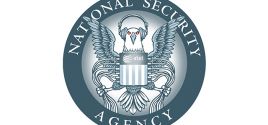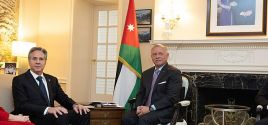Dollar slides as US business slowsRichard BealesFinancial Times Dec. 01, 2006 |
Popular 
Patriot ACT on Steroids: FISA Bill Forces 'An Enormous Range' of Businesses to Act as NSA Spies

John Hagee Cheers Israel-Iran Battle as 'Gog and Magog War,' Will Lobby Congress Not to Deescalate

Israel to Extend Water Agreement With Jordan 'For Helping Shoot Down Iranian Drones'

Telegram Founder Changed Mind on Setting Up Shop in San Francisco After Being Robbed Leaving Twitter HQ

MSNBC's Joy Reid Celebrates Prosecution of Trump as Racial Revenge Against Whitey
 The dollar suffered sharp falls on Thursday, hit by reports of weak US business activity and a benign inflation picture. The euro rose 0.7 per cent against the dollar to $1.3247 by late afternoon in New York after data from Chicago purchasing managers indicated that business activity in the Midwest unexpectedly fell last month. Sterling rose to its highest level against the dollar since its ejection from the European Exchange Rate Mechanism in September 1992. The pound rose as high as $1.9699 before edging back to $1.9658, almost 1 per cent up on the day. The yen also gained, rising 0.5 per cent against the dollar to Y115.77. A report revealed that inflation in personal consumption expenditure excluding food and energy, the Federal Reserve’s preferred inflation benchmark, held steady in October at 2.4 per cent year-on-year. The data suggested further inflation-fighting interest rate rises by the Fed, which could support the dollar, were even less likely to be needed. Michael Woolfolk, foreign exchange strategist at the Bank of New York, said: “[The] personal income and spending report and Chicago PMI were the one-two punch that knocked the dollar back on the ropes.” The Chicago purchasing managers’ index is regarded as a leading indicator of the national manufacturing index from the Institute for Supply Management, due on Friday. The Chicago PMI index fell to 49.9 in November from 53.5 in October. Many economists had expected it to rise. The core personal consumption expenditure deflator, which excludes food and energy prices, rose 0.2 per cent, against a consensus forecast of 0.1 per cent. For the year to October, the core PCE deflator rose 2.4 per cent. |



